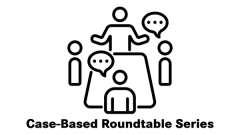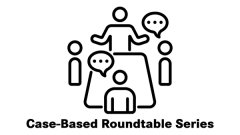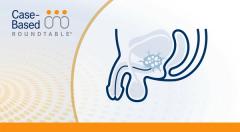
Understanding Why Darolutamide Stands Out Among ARPIs for mHSPC
Pedro C. Barata, MD, MSc, discusses the use of darolutamide in patients with hormone-sensitive prostate cancer.
Episodes in this series

Pedro C. Barata, MD, MSc, associate professor of medicine at Case Western University and director of the Clinical Genitourinary Medical Oncology Research Program at University Hospitals Seidman Cancer Center in Cleveland, Ohio, discusses the use of darolutamide (Nubeqa) in patients with metastatic hormone-sensitive prostate cancer (mHSPC).
Darolutamide demonstrated efficacy as part of both triplet and doublet therapy for mHSPC. While ARASENS (NCT02799602) showed an overall survival (OS) benefit, ARANOTE’s (NCT04736199) shorter follow-up has not yet yielded mature OS data, though Barata anticipates such a benefit with longer observation.
Darolutamide stands out for its favorable safety profile, including minimal drug-drug interactions (DDIs), reducing risks when used with common medications. Unlike other androgen receptor pathway inhibitors (ARPIs), it rarely causes rash, thyroid dysfunction, cognitive issues, or seizures.
Barata’s real-world experience, including cases where docetaxel is omitted, suggests darolutamide plus androgen deprivation therapy (ADT) alone is effective and well-tolerated. Ongoing studies like ARASEC (NCT05059236) in the Unites States are expected to further look at darolutamide’s role in the mHSPC setting.
TRANSCRIPTION:
0:10 | In the hormone-sensitive space, we have data with a triplet therapy on ARASENS and then with doublet therapy in ARANOTE. From the efficacy perspective, it is always relevant to talk about the specific setting. From the safety perspective, I think we know now that darolutamide is known to be an ARPI with the lowest number of DDIs known. [Patients] take it twice a day, which is different from the other ARPIs available. The other perspective is it appears to be very well tolerated by patients. Of course, the more you use, the more experience you get with them. But some of the things that favor the use of darolutamide include the very low number of DDIs. You don't really worry much about rash. You don't worry much about things like checking for thyroid dysfunction or even mental fogginess, for that matter, or seizures. So there are certain characteristics of darolutamide that make it a very favorable ARPI to use in this setting.
1:20 | We use therapies based on approval, not necessarily based on merits. So, we do have ARANOTE supporting its use in the hormone-sensitive space without chemotherapy. We have not seen OS difference because the follow-up was short. In this setting, we need to wait until we have mature survival data. I think we will see it, by the way, I think we'll see that difference, but we need longer follow-up to appreciate the difference in survival…because the life expectancy for these patients is measured in several years, not measured in 2 years. So from that point of view, I think the results from efficacy point of view will be aligned. It was a study [outside of the United States]. We'll have experience in the United States with the ARASEC trial ran by Dr Shore and colleagues.
2:09 | I think that will, if I were to predict the future, I think we will have robust data with darolutamide along with ADT without docetaxel to support its use by itself. Some patients, I've done it without docetaxel. Those are the patients where initially they're being considered for triplet therapy, and for whatever reason, we end up not being able to bring docetaxel on board, and they remain on darolutamide and ADT. I have done that successfully, so in general, experience is very good. Patients do very well and it's a very good option for those patients who get to us with metastatic hormone-sensitive disease.
























